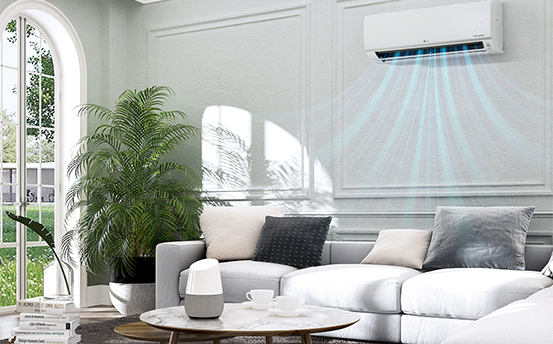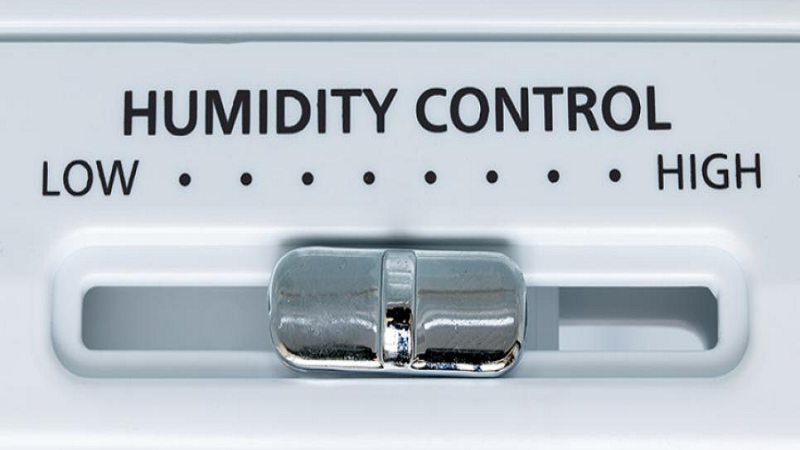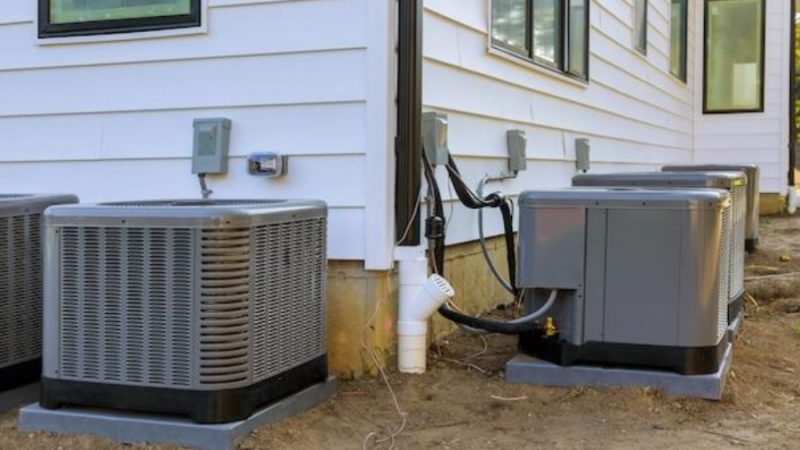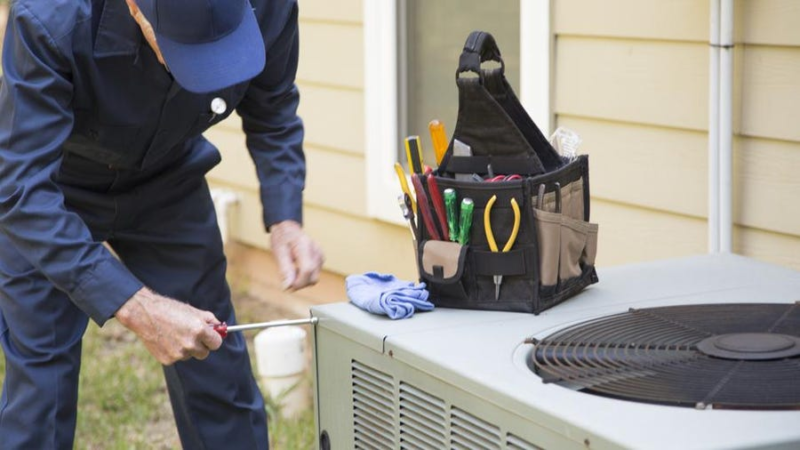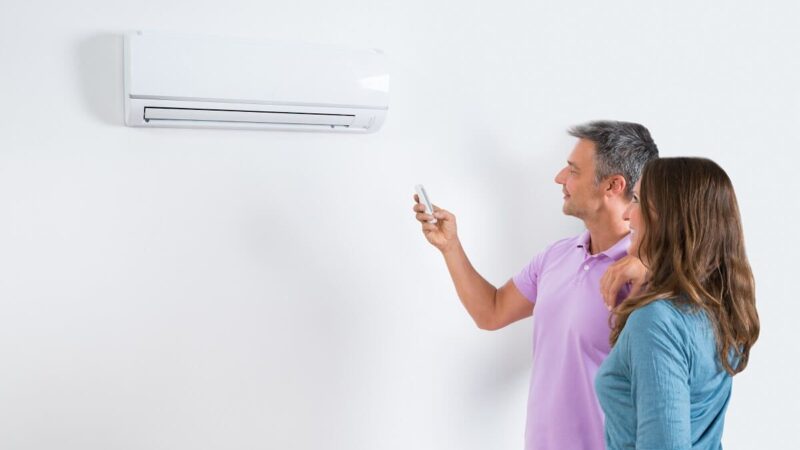How Residential Air Conditioning Systems Contribute to Healthier Living Spaces and Improved Well-Being
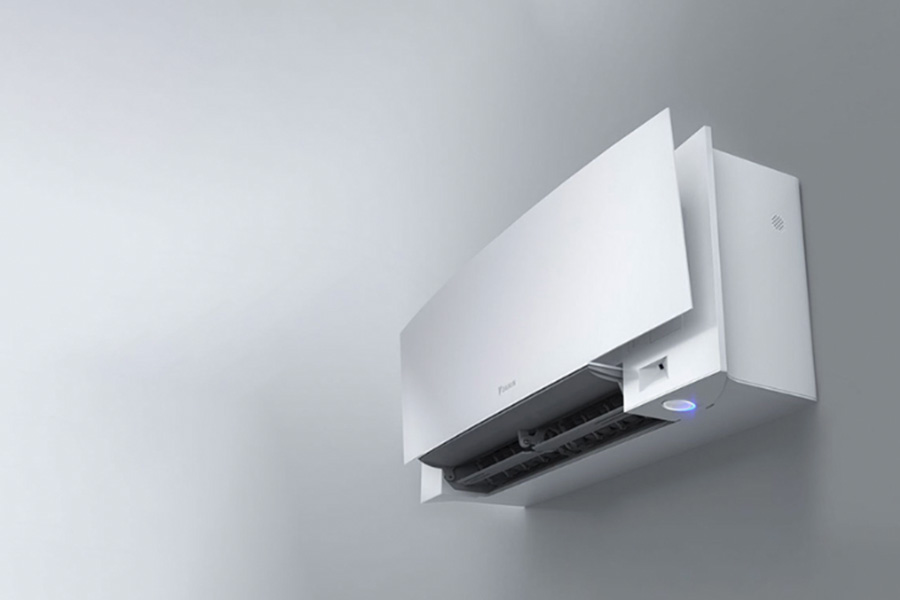
In today’s world, where the hustle and bustle of daily life often lead to increased stress and diminished well-being, the significance of a healthy living environment cannot be overstated. Among the myriad of factors that contribute to the quality of our indoor spaces, residential air conditioning systems play an indispensable role, not only in maintaining comfortable temperatures but also in enhancing the air quality within our homes. This article delves into the multifaceted benefits of air conditioning systems, examining how they contribute to healthier living spaces and the overall well-being of individuals and families.
Understanding the Role of Indoor Air Quality
The concept of indoor air quality encompasses the various elements that affect the air we breathe within our homes, including pollutants, allergens, and other harmful particles. While many individuals may not fully appreciate the invisible influences of these components, they can significantly affect health and comfort. Indoor air can be several times more polluted than the air outside, leading to a range of health issues such as respiratory problems, allergies, and even cognitive impairments.
Consequently, maintaining high indoor air quality becomes paramount, and this is where air conditioning systems emerge as vital allies. Through their various functions, these systems not only regulate temperature but also filter and purify the air we breathe, thus promoting a healthier living environment.
The Mechanisms Behind Residential Air Conditioning Systems
Residential systems operate on principles that go beyond mere cooling; they incorporate sophisticated technologies designed to filter and dehumidify air, ensuring that indoor environments remain not only comfortable but also healthy. Most systems utilise a combination of filters, including HEPA (High-Efficiency Particulate Air) filters, which are highly effective in trapping airborne particles such as dust, pollen, and pet dander. By reducing the concentration of these allergens, air conditioning systems significantly mitigate the risk of allergic reactions and respiratory ailments.
Furthermore, many modern air conditioning systems are equipped with advanced features that allow them to maintain optimal humidity levels within a home. High humidity can foster the growth of mould, mildew, and dust mites, all of which can exacerbate health issues. By effectively regulating moisture levels, air conditioning systems help create an environment that discourages these allergens from proliferating, thus contributing to improved air quality and enhanced well-being.
The Impact of Temperature Regulation on Health
The influence of temperature on our overall health and comfort cannot be underestimated. Extreme heat or cold can lead to a host of health problems, particularly for vulnerable populations such as the elderly, young children, and individuals with pre-existing health conditions. By providing a stable and comfortable indoor climate, air conditioning systems play a crucial role in safeguarding health during periods of extreme weather.
Research indicates that excessively high temperatures can lead to heat-related illnesses, such as heat exhaustion and heat stroke. Conversely, cold indoor environments can contribute to respiratory illnesses, as exposure to cold air can exacerbate asthma symptoms and increase susceptibility to infections. Thus, maintaining a comfortable temperature through the use of air conditioning not only enhances immediate comfort but also protects against potential health risks associated with temperature extremes.
Reducing the Risk of Indoor Pollution
Indoor pollution can arise from various sources, including household cleaning products, building materials, and outdoor pollutants that infiltrate indoor spaces. Residential air conditioning systems help mitigate the impact of these contaminants by continually circulating and filtering indoor air. Advanced filtration systems, often incorporated into modern air conditioning units, can trap and eliminate harmful chemicals and particles, thereby enhancing overall air quality.
Moreover, some air conditioning systems come equipped with additional purification technologies, such as UV light or ionisation, which can further reduce the presence of airborne pathogens and volatile organic compounds (VOCs). By diminishing the levels of these harmful substances in the air, air conditioning systems create a healthier environment that is conducive to well-being and productivity.
Psychological Benefits of a Comfortable Indoor Environment
The relationship between our physical surroundings and mental health is a profound one. Studies have shown that the quality of indoor air and overall comfort levels can significantly impact mood, cognitive function, and overall mental well-being. A comfortable and clean indoor environment can promote relaxation, improve concentration, and enhance productivity.
When air conditioning systems efficiently regulate temperature and air quality, they create an environment that fosters positive mental health outcomes. Individuals are more likely to feel at ease and less stressed in a space that is comfortable and free from allergens and pollutants. Consequently, the investment in a quality air conditioning system not only benefits physical health but also contributes to enhanced psychological well-being.
Promoting Better Sleep Quality
Sleep is an essential component of overall health, and the quality of our sleeping environment can greatly influence our ability to achieve restorative rest. A comfortable temperature, along with good air quality, is crucial for a good night’s sleep.
Excessive heat or humidity can lead to restless nights, while cool, dry air can help facilitate better sleep. Many residential air conditioning systems are equipped with programmable thermostats, allowing individuals to customise their sleeping environments according to their preferences. This capability ensures that air conditioning units can maintain an optimal sleeping temperature, which can significantly improve sleep quality and, by extension, overall health and well-being.
Environmental Considerations and Energy Efficiency
While the benefits of air conditioning systems are substantial, it is essential to consider the environmental impact of these systems. Traditional air conditioning units can be energy-intensive, contributing to greenhouse gas emissions and higher energy costs. However, advancements in technology have led to the development of more energy-efficient systems that maintain comfort while minimising environmental impact.
By investing in energy-efficient air conditioning units, homeowners can reduce their carbon footprint while still enjoying the benefits of improved air quality and comfort. Many modern systems feature variable-speed compressors and smart thermostats, which optimise energy usage based on real-time conditions. As such, individuals can enjoy the health benefits of air conditioning without compromising their commitment to environmental sustainability.
Choosing the Right Residential Air Conditioning System
Selecting the appropriate air conditioning system for one’s home is a decision that requires careful consideration of various factors. Each household has unique requirements based on its size, layout, and occupancy patterns. Consulting with a qualified HVAC professional can help homeowners identify the most suitable system for their needs.
It is also crucial to consider the maintenance of air conditioning systems to ensure they operate at peak performance. Regular filter changes, cleaning of ducts, and annual servicing can enhance the efficiency and longevity of air conditioning units, ensuring that they continue to provide optimal air quality and comfort for years to come.
Conclusion
In conclusion, the importance of residential air conditioning systems extends far beyond mere comfort; these systems are integral to enhancing indoor air quality, which is critical for promoting health and well-being. By effectively filtering pollutants, regulating humidity, and maintaining comfortable temperatures, air conditioning units create environments that support physical health, psychological well-being, and overall quality of life.
As we continue to navigate the complexities of modern living, the need for healthier indoor spaces becomes increasingly apparent. Investing in a quality system is not only a wise decision for comfort but also a significant step towards creating a living environment that fosters health and happiness. By embracing the benefits of these systems, homeowners can ensure that their indoor spaces remain sanctuaries of well-being in an ever-changing world.


